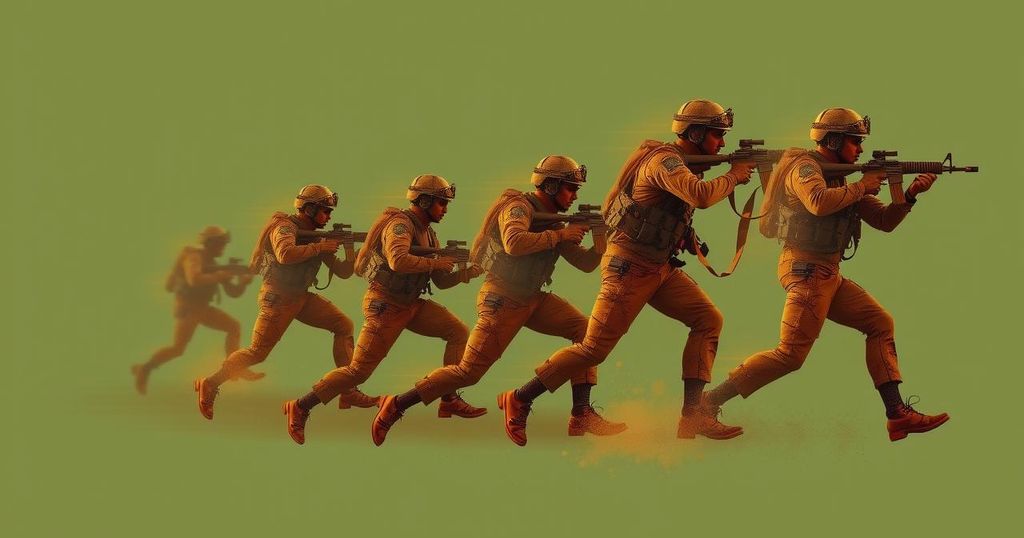Iraq’s parliament is examining the PMF law to integrate this force into the military, responding to U.S. concerns about its ties to Iran. The law aims to enhance oversight, prevent political involvement in military operations, and delineate responsibilities. Ongoing political disputes reflect the challenges of establishing a cohesive legal framework for the PMF amidst domestic and foreign influences.
Iraq’s parliament recently conducted its first hearing on the Popular Mobilization Forces (PMF) law, aimed at integrating this organization into the state military. On the same day, U.S. officials emphasized that all groups under the PMF must report to the Iraqi Prime Minister, rather than being influenced by Iran. The PMF was established in 2014 to combat the Islamic State (ISIS) and consists mainly of Shiite armed groups that formed in response to a religious edict from Ayatollah Ali al-Sistani.
The PMF previously operated under a law passed in 2016, although it lacked comprehensive details for effective operation. Recently, a new Service and Retirement Law was approved by the Iraqi Council of Ministers, which underscores the need to align the PMF with other governmental security entities. However, partisan disputes, particularly regarding retirement ages and operational oversight, led to its withdrawal from parliament consideration by Prime Minister Mohammed Shia’ al-Sudani.
Within the legislature, tensions are evident among the Shiite political factions on the PMF’s legal framework, with some pushing for certain provisions to limit the powers of seasoned PMF leaders. Notably, Chairman Falih al-Fayyadh met with Iranian officials, raising concerns about external influences on the PMF’s legislative progress. U.S. officials have expressed apprehensions about the PMF’s alliances with Iranian-backed groups and their implications for Iraq’s military neutrality.
U.S. State Department spokesperson Tammy Bruce stated that Iraq must establish control over its security forces independent of Iran, ensuring that the PMF is accountable to Iraq’s commander-in-chief. Analysts highlight the entrenched political ties within the PMF, recommending its integration into the Iraqi Ministry of Interior to sever connections with political factions.
The proposed PMF law includes stipulations to place the organization under the direct command of the Iraqi Prime Minister. Additionally, it would bar PMF personnel from engaging in political activities, and assign comprehensive national defense responsibilities. The leadership structure aims to enhance professionalism with requirements for educational backgrounds and experience in military or security affairs.
Going forward, the PMF law must navigate several legislative procedures. The initial reading may indicate a compromise among political parties, potentially resolving the protracted legislative stall. Once finalized, all provisions and personnel from the 2016 PMF law will transition to the new framework, officially dissolving the previous legislation.
The proposed Popular Mobilization Forces law signifies Iraq’s attempt to integrate a historically complex organization into its state military system while navigating internal political dynamics and external pressures. The decision-making process remains influenced by various Shiite factions, reflecting broader geopolitical concerns, specifically regarding Iran’s influence. Effective implementation of this law could set a precedent for greater governmental oversight and national sovereignty in Iraq’s security framework.
Original Source: www.rudaw.net






